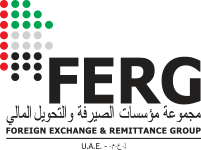Global Banking Regulations Pose Threat To Money Exchanges
Industry body to discuss its concerns with lenders and the central bank
Dubai: The currency exchange houses that are primarily engaged in money transfer and foreign exchange business in the UAE are facing growing challenges from a banking industry facing ever-growing global banking regulatory requirements, said Osama Al Rahma, chairman of the Foreign Exchange and Remittance Group (FERG), the UAE remittance industry body.
“Under growing pressure from international banks and banking sector regulators, banks are required to undergo stringent compliance standards [that] make some lines of business less lucrative for them and some of them have either quit or are rethinking the future of these lines of businesses,” said Al Rahma.
Although the UAE based exchange houses are regulated by the Central Bank of UAE and follow stringent compliance standards, FERG officials say under the pretext of negotiating compliance standards, international banks and foreign regulators are forcing local banks to disengage from exchange houses and money transferors.
“The support of local banks is an important element in money transfer business as all transactions are executed through the banking channel. If the banking sector refuses to do business with exchange houses, this business will come to a standstill,” said Rajiv Raipancholia, FERG Secretary.
As part of its efforts secure the support of the UAE banking sector for exchange houses, FERG is planning to take up their concerns directly with the Central Bank of UAE and the UAE Banks Federation (UBF).
Meaningful role
“Exchange houses have a meaningful role in the financial ecosystem of this region in terms of financial inclusion and a source of meeting the banking needs of the low-income groups, thus it is important for us to stand together as a group and communicate our issues with banks and relevant authorities,” Al Rahma said.
Relatively low transaction yields, rising operational costs and ever-increasing compliance requirements are driving at least a few leading banks in the UAE to rethink their relations with money transfer businesses.
While a few banks themselves are offering money transfer services to their customers at competitive rates, exchange houses are worried that they could eventually get marginalised in the financial ecosystem of the UAE.
“I think as an industry we need to collectively engage the banks in the country and address their worries in terms of compliance requirements,” Raipancholia said.
Exchange companies are governed by strict anti-money laundering (AML) regulations specified and monitored by the Central Bank of the UAE. Currently these companies have strong initiatives in place to streamline their operations with requirements on ‘Know Your Customer — [KYC]’ principles to safeguard the interests of consumers, regulators, shareholders, employees and the community in general.
Exchange houses in the UAE have a unique role in the financial services business in the country. Apart from the money-changing business, exchange firms in the UAE are the primary channels for transferring large volumes of remittances. In 2014, the industry is estimated to have transferred more than Dh140 million. In addition, they also provide various ancillary services like credit cards payments, saving schemes such as National Bonds, encashment of travellers cheques, salik and mobile top ups as well as accepting payments for airline tickets.
According to the Central Bank of UAE, there are 140 money-exchange companies with a combined network of over 974 branches across the emirates.
FERG currently has 61 exchange houses as members.
FERG’s role is to ensure implementation of best practice standards among exchange houses in the UAE, in addition to providing a platform for sharing knowledge related to the financial industry. It also ensures the industry’s views and opinions are heard and considered by regulatory and government bodies.
Source: Gulf News, May 18th 2015.
http://gulfnews.com/business/sectors/banking/global-banking-regulations-pose-threat-to-money-exchanges-1.1512210

